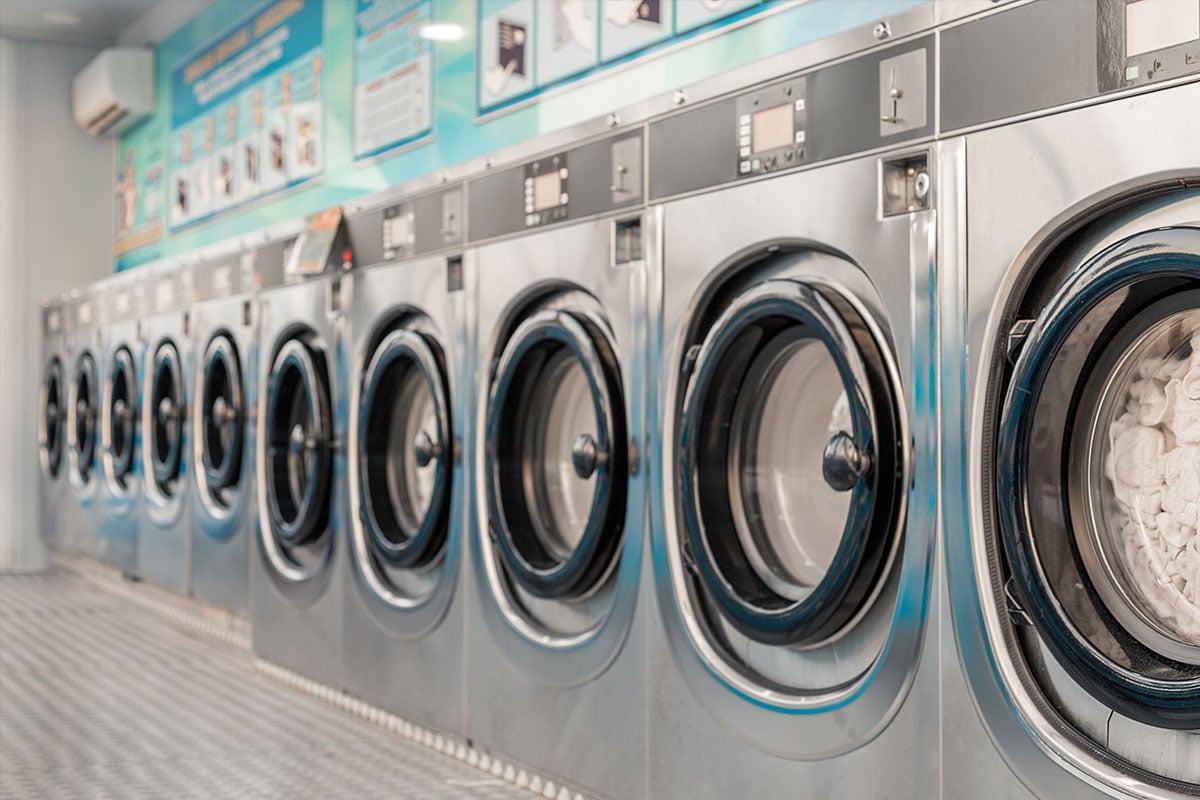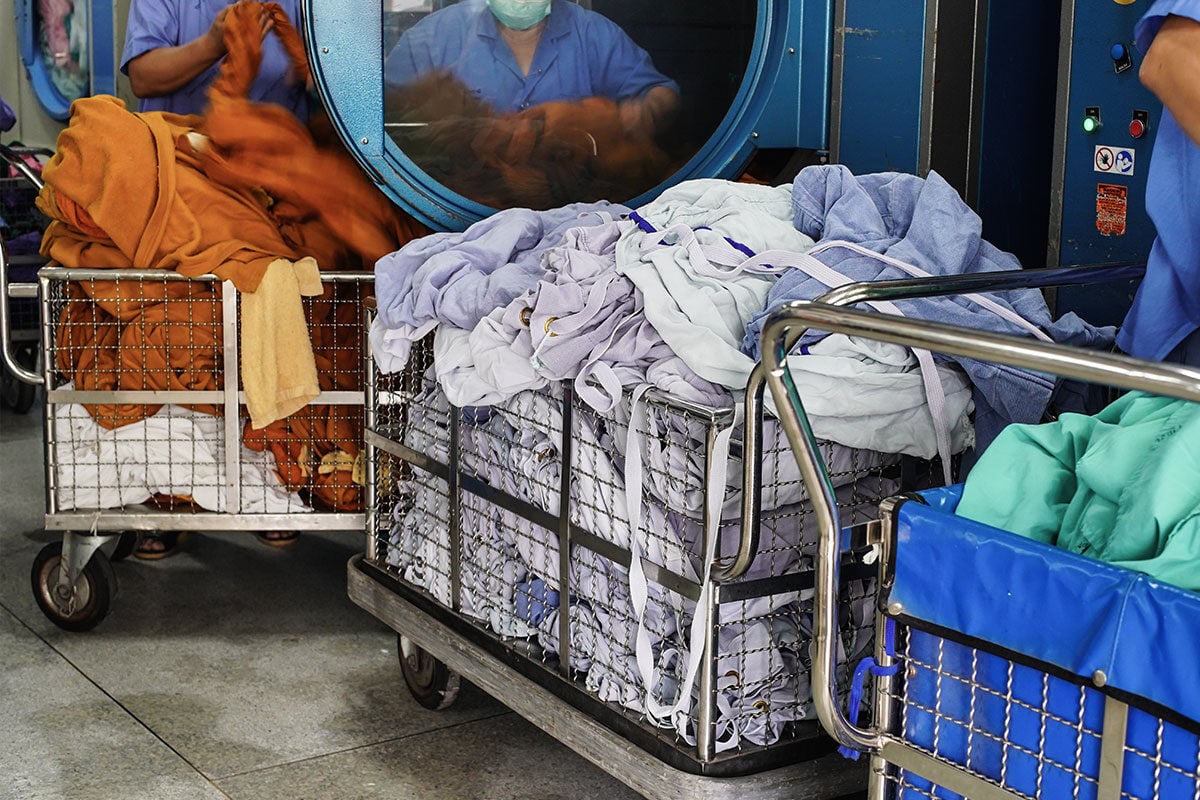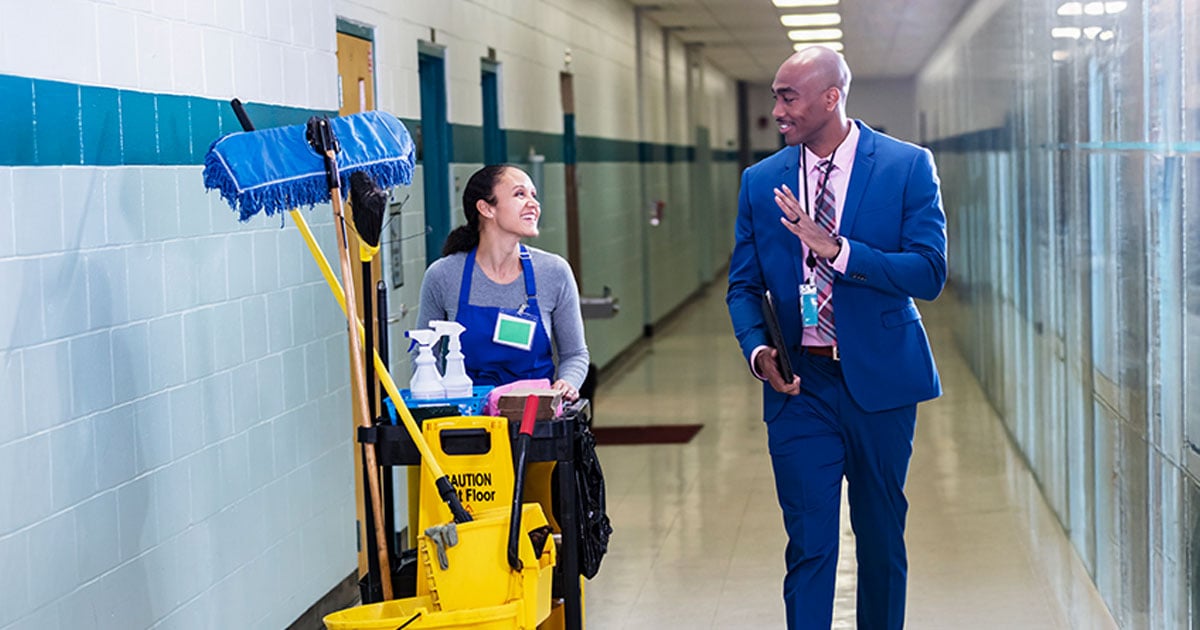16 min read
The Power of Procedures for K12 Warewashing
In K12 school cafeterias, cleanliness isn’t just about appearances — it’s about food safety, efficiency and compliance. Trays, utensils, and kitchen...
2 min read
 BradyPLUS Editorial
:
May 21, 2025
BradyPLUS Editorial
:
May 21, 2025

Laundry operations in university settings go beyond simple wash-and-dry cycles. They’re tasked with handling an enormous variety of laundry, from janitorial mop heads to high-performance athletic uniforms — all while maintaining hygiene standards, managing costs, and minimizing downtime.
Due to these complexities, universities require more than reliable chemical dispensing equipment — they need expert service and training to keep operations running seamlessly. A well-managed system safeguards the quality of campus life by ensuring essential laundry is fresh, functional, and available when needed.
The difference between a smooth operation and constant headaches often comes down to how well service teams maintain chemical dispensing equipment and how effectively staff are trained in best practices. With proper oversight, the system becomes more efficient, resulting in decreased costs, less waste, and a smoothly run campus.
When service and training are prioritized, universities can avoid unexpected disruptions, extend the lifespan of their laundry, and reduce overall operational costs. Here’s how they do it.
For universities, laundry solutions are about reliability, longevity, and operational efficiency. Institutions don’t choose laundry solutions experts based solely on pricing; they prioritize providers who offer responsive, knowledgeable service that keeps washing machine chemical dispensing equipment running at peak performance.
Key service differentiators include:

One university laundry program struggled with persistent staining on janitorial mop heads and linens. The culprit? An overlooked shift in water alkalinity that led to detergent buildup. A trained technician identified the issue immediately, adjusted the chemical mix, and restored service — preventing thousands in replacement costs. This proactive approach is what differentiates top-tier service providers from reactive ones.

Even the best chemical dispensing equipment and service contracts can’t compensate for improper machine use. Universities often rely on a mix of staff and student workers, many of whom lack formal training in laundry operations. Proper instruction can help avoid minor mistakes like overloading washers or using the wrong chemical ratios to extend the lifecycle of equipment and reduce the cost and time of repair servicing.
Critical training components include:

When service and training work together, universities not only keep their laundry systems efficient but also create a sustainable model for long-term cost savings. The right laundry solutions provider doesn’t stop at fixing broken chemical dispensing equipment; they actively educate campus staff, analyze usage patterns, and recommend efficiency improvements.
A well-trained team and a strong service partnership create a cost-effective, high-performing laundry system that supports the evolving needs of students, faculty, and facilities teams. Universities that invest in ongoing training and expert maintenance transform laundry from a recurring challenge into a seamless operation that extends fabric life, optimizes budgets, and ensures a consistently clean, comfortable environment for students and staff alike.

16 min read
In K12 school cafeterias, cleanliness isn’t just about appearances — it’s about food safety, efficiency and compliance. Trays, utensils, and kitchen...

7 min read
As K12 schools across the country grapple with tighter budgets, operational efficiencies have become more crucial than ever – especially in...

19 min read
From Pre-K facilities all the way up to college campuses, the health and cleanliness of school environments have proved to be powerful drivers of...